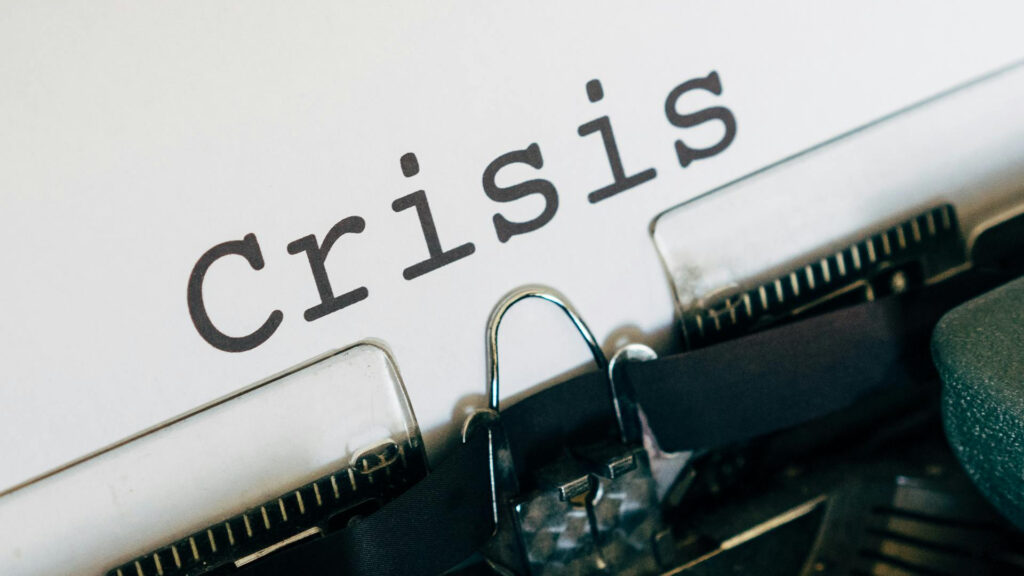In my two decades orchestrating events, I’ve learned that even the most meticulously planned gatherings can be susceptible to the unexpected. From minor hiccups like a sudden AV malfunction to more serious situations like severe weather or medical emergencies, the ability to effectively manage crises is a hallmark of a seasoned event professional. “Crisis Control” isn’t about predicting the future; it’s about being prepared, having clear protocols in place, and acting decisively to ensure the safety and well-being of your attendees and the successful (and safe) continuation or conclusion of your event.
Ignoring the potential for emergencies is not an option. A well-thought-out crisis management plan isn’t just a good idea; it’s a fundamental responsibility. It demonstrates due diligence, protects your attendees, your team, and your reputation. So, let’s delve into the essential strategies for handling those unforeseen challenges that can arise during an event.
The Proactive Approach: Preparation is Paramount
Crisis control begins long before the first guest arrives. Proactive planning is the bedrock of effective emergency response:
Risk Assessment: Conduct a thorough risk assessment for your specific event and venue. Identify potential hazards, from common issues like power outages and equipment failures to more serious risks like fire, medical emergencies, security threats, or natural disasters relevant to your location (keeping in mind the current context, even geopolitical considerations might be relevant depending on the event and location).
Develop a Comprehensive Crisis Management Plan: This written document should outline procedures for various emergency scenarios. It should include:
Emergency Contact Information: Clearly list key personnel (event organizers, security, medical staff, venue management) and local emergency services (police, fire department, ambulance).
Communication Protocols: Establish clear communication channels and procedures for disseminating information to staff, attendees, and stakeholders during a crisis. This includes designated communication leads and backup methods.
Evacuation Plans: Develop detailed evacuation plans for the venue, clearly marked emergency exits, and designated assembly points. Ensure staff are thoroughly trained on evacuation procedures.
Medical Emergency Protocols: Outline procedures for handling medical incidents, including the location of first aid stations, contact information for on-site medical personnel (if applicable), and steps for contacting emergency medical services.
Security Protocols: Define security procedures for handling potential threats, including protocols for communicating with security personnel and, if necessary, law enforcement.
Media Communication Plan: Designate a spokesperson and develop key messages to be communicated to the media in the event of a crisis. Controlling the narrative is crucial for managing reputational damage.
Establish an Emergency Response Team: Identify key individuals who will be responsible for managing different aspects of a crisis. Clearly define their roles and responsibilities within the crisis management plan.
Venue Coordination: Work closely with the venue management to understand their emergency procedures, evacuation plans, and available resources. Ensure your plan aligns with theirs.
Insurance Coverage: Review your event insurance policies to ensure adequate coverage for potential emergencies and liabilities.
During the Event: Swift Action and Clear Communication
When an unexpected situation arises, swift and decisive action, coupled with clear communication, is critical:
Stay Calm and Assess the Situation: The first step is to remain calm and gather accurate information about the nature and extent of the emergency.
Activate the Emergency Response Team: Alert the designated members of your crisis management team and initiate the relevant protocols outlined in your plan.
Prioritize Safety: The safety and well-being of your attendees and staff should always be the top priority. Take immediate steps to mitigate any immediate risks.
Communicate Clearly and Concisely: Provide timely and accurate information to attendees, staff, and other stakeholders. Use pre-determined communication channels (e.g., event app notifications, PA system announcements, designated staff members). Avoid speculation and stick to the facts.
Follow Established Protocols: Adhere to the procedures outlined in your crisis management plan. This will help ensure a coordinated and effective response.
Designate On-Site Authority: Ensure there is a clear point person responsible for making decisions and directing the response efforts during the crisis.
Provide Assistance and Support: Offer assistance and support to those affected by the emergency, including medical aid, emotional support, and information.
Document Everything: Keep a detailed record of the incident, the actions taken, and the communication exchanged. This documentation will be valuable for post-event analysis and insurance purposes.
Post-Event Analysis: Learning and Improvement
Even after the immediate crisis has passed, there are crucial steps to take:
Conduct a Debriefing: Gather your emergency response team and key stakeholders to review the incident, assess the effectiveness of your response, and identify areas for improvement in your crisis management plan.
Gather Feedback: Solicit feedback from attendees and staff regarding their experience during the emergency and the effectiveness of the communication and support provided.
Update Your Crisis Management Plan: Based on the debriefing and feedback, revise and update your crisis management plan to address any identified weaknesses or areas for improvement.
Review Insurance Claims: If applicable, initiate and manage any necessary insurance claims related to the incident.
Communicate with Stakeholders: Provide an update to sponsors, partners, and other stakeholders regarding the incident and the steps taken to address it.
The Inevitable Uncertainty:
Despite the most meticulous planning, some emergencies are inherently unpredictable. However, by having a robust crisis management plan in place, training your team, and fostering a culture of preparedness, you significantly increase your ability to respond effectively and minimize the potential negative impact.
In my years in this industry, I’ve unfortunately witnessed events where a lack of preparedness led to confusion, panic, and even harm. Conversely, I’ve also seen well-prepared teams navigate challenging situations with remarkable efficiency and care. Crisis control isn’t about avoiding the unexpected; it’s about having the knowledge, the plan, and the team in place to handle it with professionalism and prioritize the safety and well-being of everyone involved. It’s a fundamental aspect of responsible event management.


